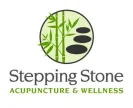![]()
This post is copied from our older, original blog. Original post date 10/25/2011.
By Marcie Bower, Lic.Ac.
Most people in the United States seek out acupuncture for musculoskeletal pain. Clinically, we also see an abundance of chronic health conditions, and syndromes unexplained by allopathic medicine. But did you know that you can use acupuncture and herbal medicine to effectively treat the common cold and seasonal flus, as well?
As we move more deeply into fall and get ready for winter, it is important to think about how to treat colds and flus when they arise.
In Traditional Chinese Medicine, colds are caused by an external pathogen called “wind.” Wind is usually combined with another pathogenic influence to attack the body, such as cold, or heat, or dampness (an abnormal accumulation of fluids.) Wind carries these other pathogens into the body. The symptoms of colds and flus (nasal congestion, fever, chills, sore throat, cough, neck stiffness) occur when these pathogens are in the exterior levels of the body. If the cold or flu is not treated, or if the body’s natural defenses are not strong enough (as with immunocompromised patients), then the pathogen will penetrate deeper into the body, and symptoms become more severe. (Examples of this more severe level of pathogens in the body include pneumonia, meningitis, or diseases like scarlet fever.) While acupuncture and herbal medicine have been used to effectively treat these later stage infections in Asian countries, in the USA, you should go to the doctor or hospital for these later stage infectious diseases.
However, while the pathogen is in the exterior layers of the body (ie, when you are experiencing typical symptoms of a cold or flu), acupuncture and Chinese herbal medicine can be an incredibly effective treatment. From an acupuncture perspective, the treatments focus on dispelling the wind and pathogenic influences from the body. Treatments for colds and flus thus often utilize acupuncture (or acupressure, for young children), a manual therapy called cupping, and oral administration of herbal medicine pills.
Your acupuncturist will make a determination as to whether you are suffering from a cold that is predominantly a wind-heat-type pattern or predominantly a wind-cold-type pattern based on the symptoms that you present with, and also the information gleaned from your tongue and pulse. (As a general rule, things that are red, hot, or sticky are related to heat, and things that are watery, cold, or pale are related to cold.) Common symptoms of a wind-heat-type cold include cough, thick yellow nasal mucus or phlegm in the throat, sore and painful throat (red tonsils), fever, a headache made better by application of cold, and thirst. Common symptoms of a wind-cold-type cold include chills, neck tension, profuse watery nasal mucus or phlegm in the throat, and a headache made better by warmth. Your acupuncturist will choose the best points for your particular presentation.
Acupuncture is most effective at the beginning stages of a cold or flu, and treatment right when symptoms begin can often shorten the duration and/or intensity of the sickness.
In fact, preliminary studies in China, Japan, and the USA have shown acupuncture may be effective in limiting the duration of flu symptoms, relieving fever, reducing pain and swelling, and clearing nasal congestion.
Herbs are an important part of treatment during the early stages of colds and flus. One of the most commonly prescribed formulas is called Yin Qiao San. This formula targets wind-heat-type colds and flus. It is very common in clinical practice because most episodes of a wind-cold invasion eventually lead to wind-heat. (For example, maybe you start off with a runny nose for a day, but the next day you have a slight fever, your throat hurts, and your nose is less runny but more congested. This is an example of the wind-cold turning into a wind-heat pattern.) The chief herbs in the formula, Lian Qiao (Forsynthia Fruit) and Jin Yin Hua (Honeysuckle Flower) can be taken as a tea throughout an episode of cold or flu symptoms.
Clinically, we see a dramatic effect on the severity or duration of colds and flus when patients are treated with acupuncture and Chinese Herbal Medicine in the early stages. So the next time your throat gets a little scratchy, don’t wait! Get in to see your acupuncturist as soon as you can, and you’ll be back to your normal, healthy, self much sooner than you otherwise would be.

